
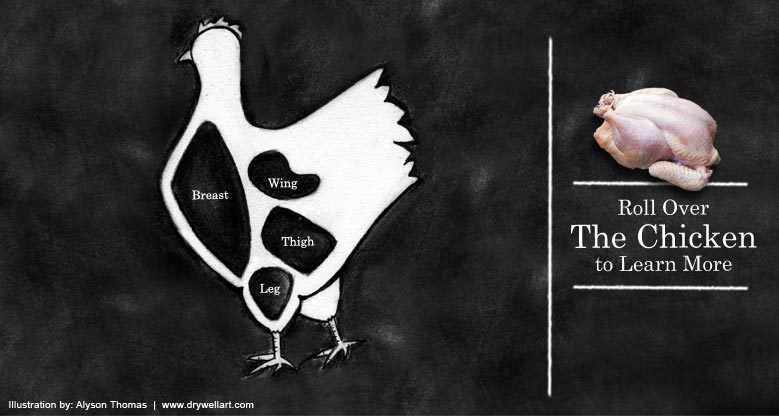
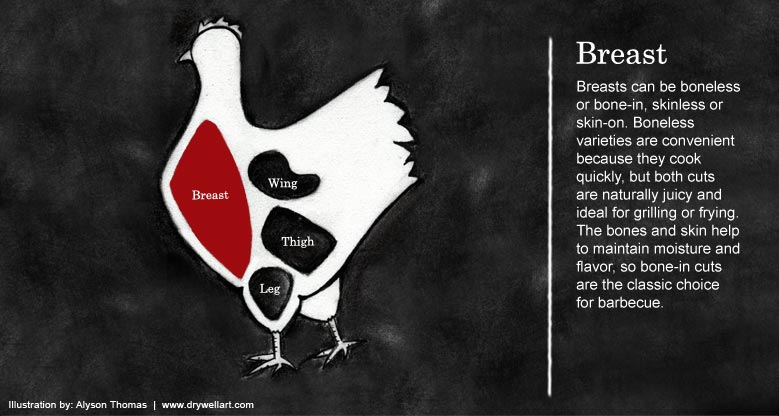
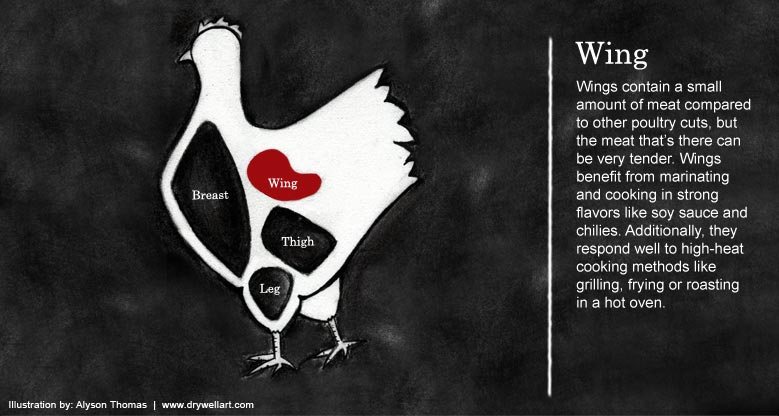
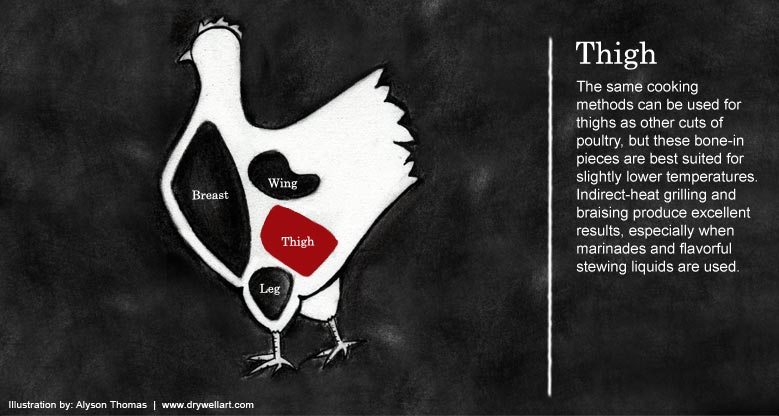
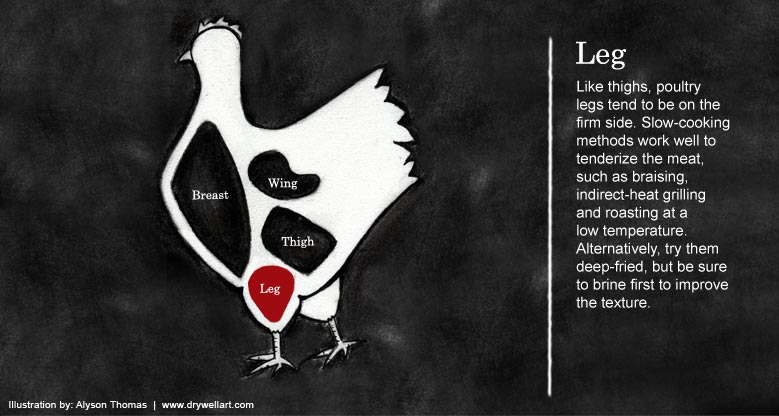
The terms "organic" and "free range" are not standardized and are subject to different interpretations. Generally, organic poultry is raised without antibiotics or growth hormones and is given organically grown feed. Note that in order to carry the "organic" label, poultry must be certified, a process that costs time and money. Some small producers, therefore, do not apply for certification even though their products may conform to organic standards.
Poultry allowed access to the outdoors can be labeled free-range. Some say the exercise and more varied diet of free-range birds translates to more flavorful and better-textured meat than that of cage-raised birds.
Always handle raw poultry carefully to avoid cross-contamination of food-preparation surfaces and utensils, and never allow it to come into contact with foods that will be eaten raw or only partially cooked.
It is also a good idea to reserve one cutting board for raw poultry, meats and seafood and another for produce and to wash the boards thoroughly with hot, soapy water and dry well between uses.
Kosher birds are processed under rabbinical supervision. Their processing differs slightly from that of regular birds and is the reason why kosher birds often have a few feathers still attached (they should be pulled out before cooking). Kosher birds are treated with salt; although they are rinsed before packaging, the salt does penetrate into the meat. For this reason, if you are following a recipe that calls for brining, do not use a kosher bird – the finished dish may taste overseasoned.







